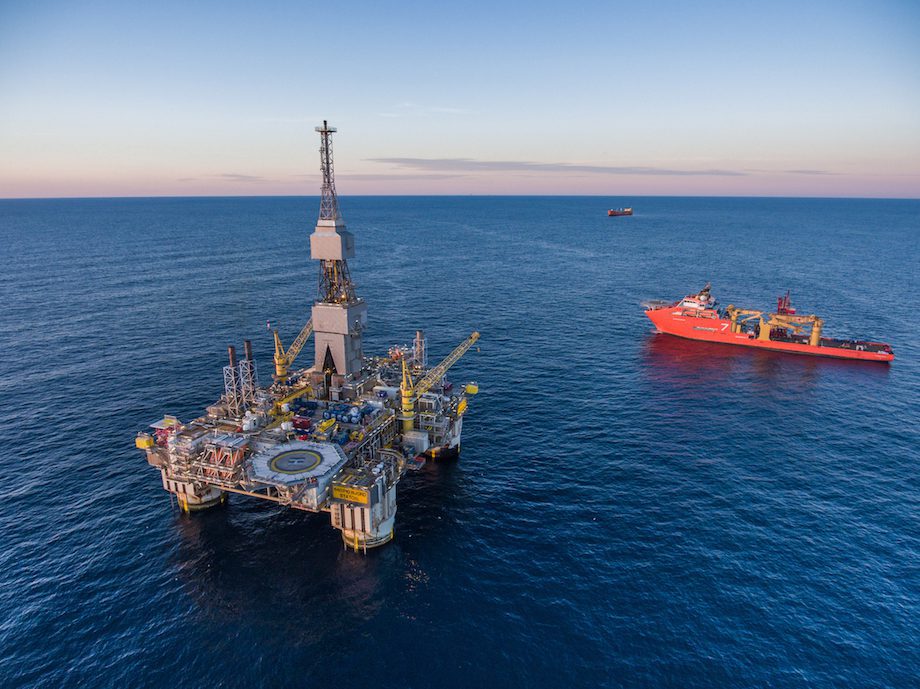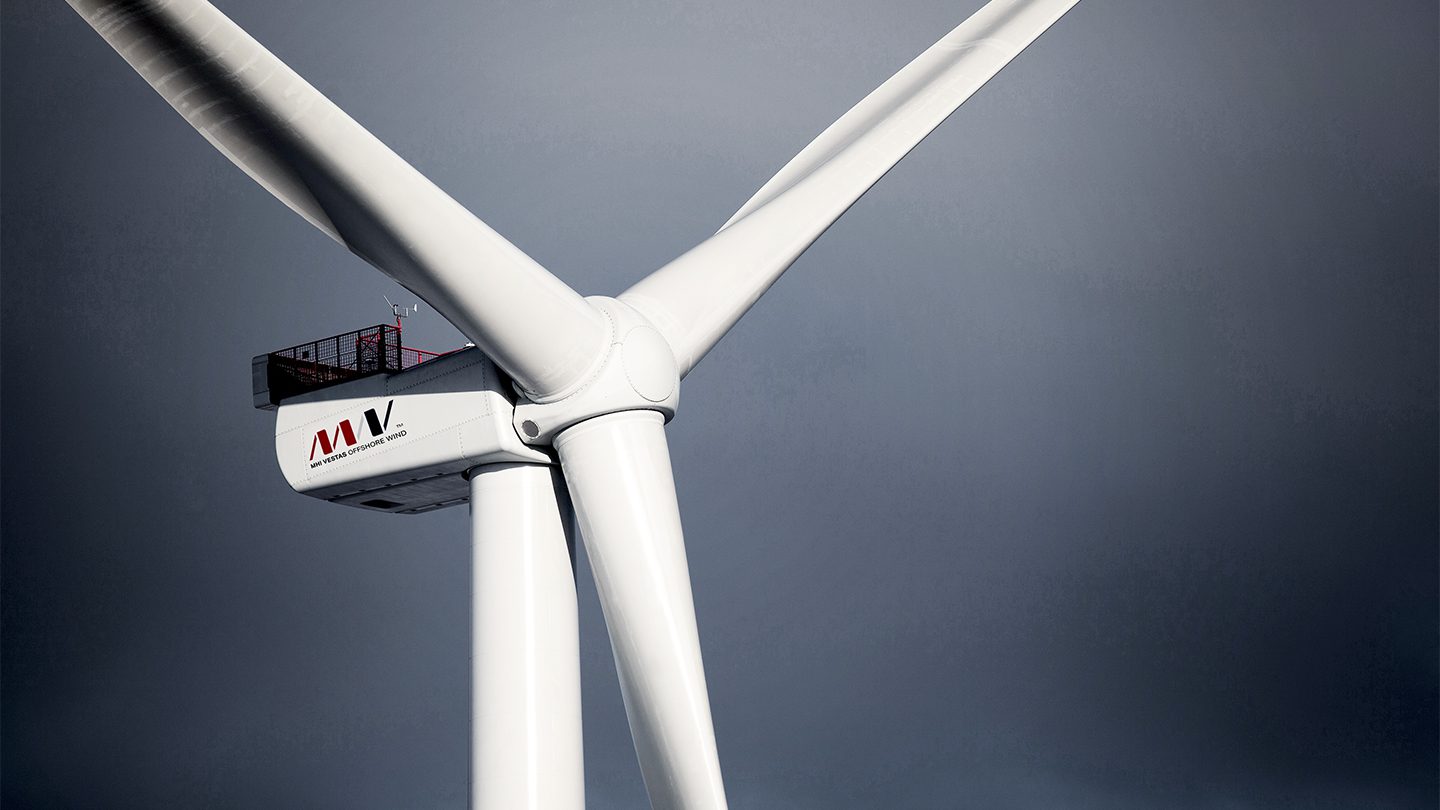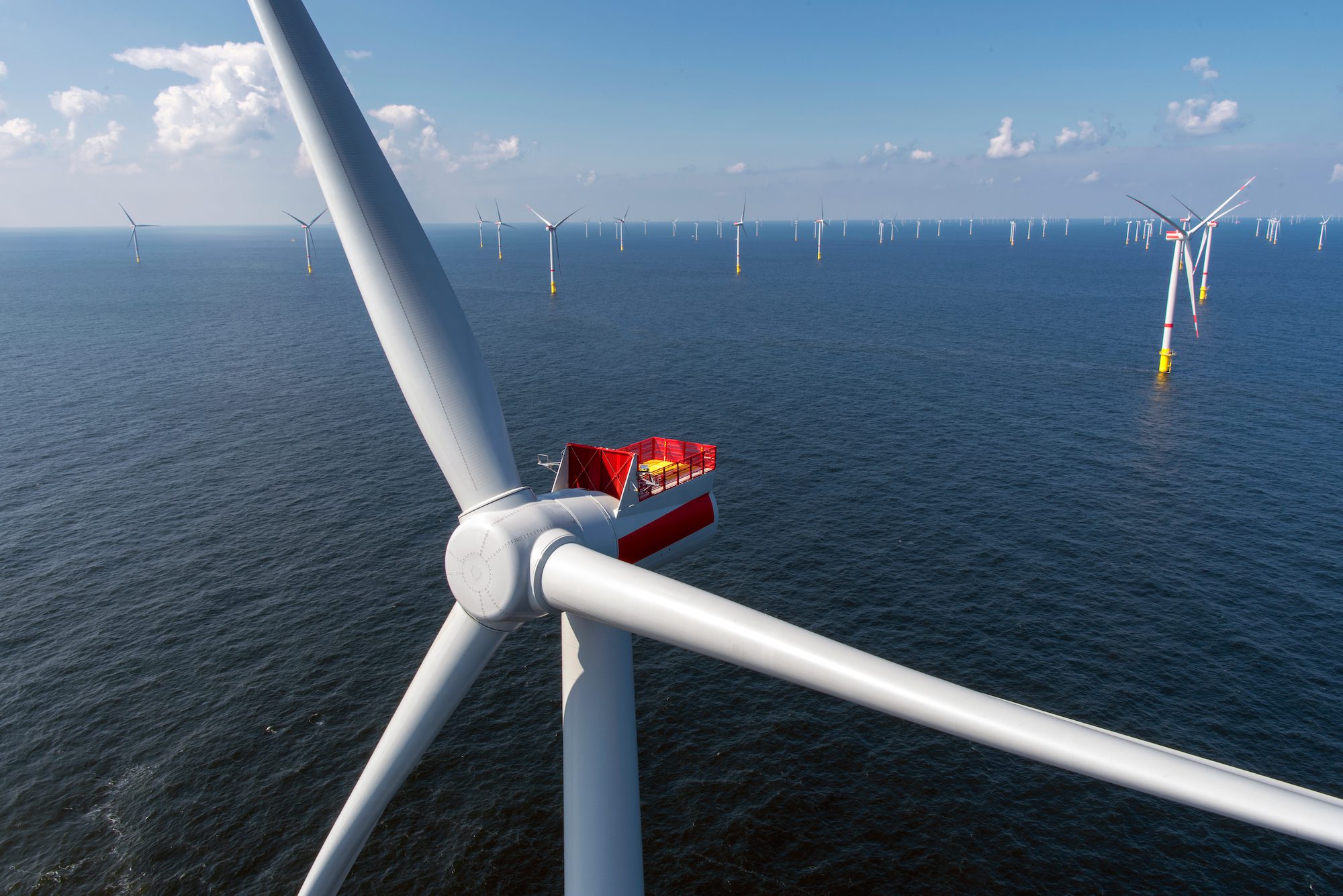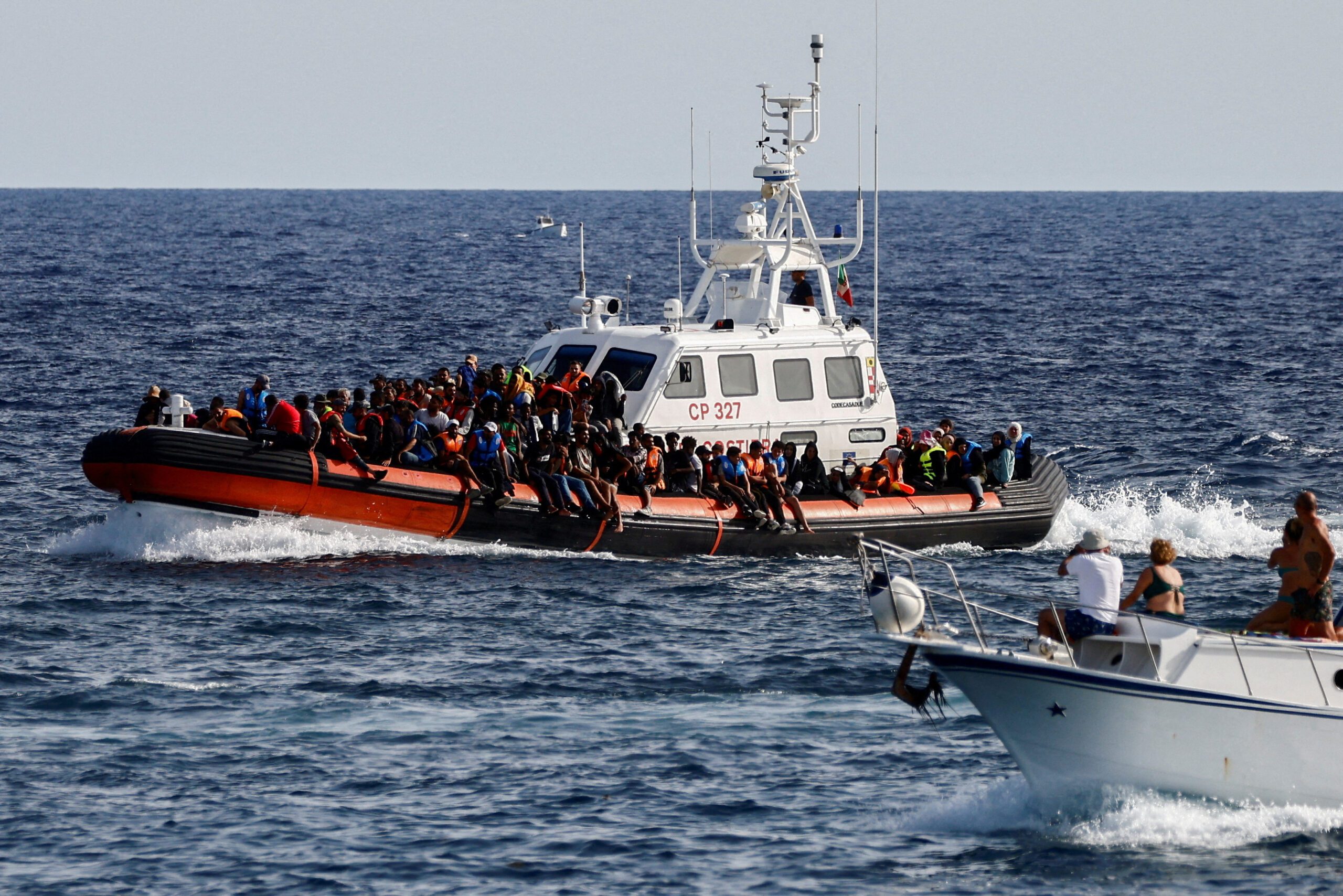File photo: Statoil/Thomas Sola
By Mikael Holter
(Bloomberg) — The offshore fleet tending to Norway’s oil industry, already sailing through the worst downturn in a generation, is in for even more pain, according to the head of the Norwegian Shipowners’ Association.
Almost one in four offshore vessels, or about 140 units, and half of the floating rigs, or about 20 units, are now out of work, Chief Executive Officer Sturla Henriksen said. He sees that going “from bad to worse” over the next year, with as many as three in four rigs idled by the end of 2017 and no real recovery in sight.
“It’s a highly challenging situation, but it will get worse,” he said in an interview in his Oslo office on Tuesday. “It will still be bad two to three years from now, and maybe longer.”
There will only be demand for 14 of about 40 floating rigs in Norway next year, Jarand Rystad, managing partner of consultancy Rystad Energy AS, said at a conference in Stavanger Wednesday, echoing Henriksen’s forecast.
More than two years after crude prices started to collapse, oil companies worldwide have cut spending by hundreds of billions of dollars, decimating demand for services from drillers, seismic surveyors and supply vessels. Norway, western Europe’s biggest oil and gas producer and home to one of the world’s biggest offshore fleets, has been battered by the downturn. The industry has cut more than 40,000 jobs since 2014 and the government resorted to the first-ever withdrawal from its massive wealth fund to cover budget needs.
Cash Lifeline
Henriksen’s grim predictions echo comments from analysts and companies such as Seadrill Ltd., owner of the world’s third-biggest offshore rig fleet. While utilization rates for floating rigs could reach a bottom as soon as the beginning of next year, it’s impossible to say when rental rates would recover, Seadrill CEO Per Wullf said in September.
And many contracts signed before the downturn are now expiring, meaning a crucial cash-flow lifeline will be lost as deals are at best re-negotiated at rates near operational costs, Henriksen said.
“It’s now starting to bite in such a way that the structural consequences are coming,” he said. “We’re going to see changes both in the ownership structure and for the companies. We’re going to see fewer and bigger units, with other ownership constellations than we’ve seen before.”
Norway billionaire Kjell Inge Rokke pushed through a merger of supply vessel company Solstad Offshore ASA with rival Rem Offshore ASA in July after blocking a restructuring proposal in a bondholder vote. Rokke’s Aker has made clear that it has an appetite for further deals as it bets on a recovery of oil and oil-service markets in the coming years.
Statoil Monopoly
The plight of the Norwegian oil-service industry has been exacerbated by the dominant position of Statoil ASA, said Henriksen, who has previously criticized the state-controlled oil producer for squeezing suppliers by demanding price cuts to unsustainable levels. Norwegian authorities should remove management of Statoil’s state-ownership from the Petroleum and Energy Ministry, which also acts as the industry’s regulator, as well as reduce the 70 percent of the country’s oil and gas fields that it currently operates, he said.
“Statoil acts as the monopolist that it is,” Henriksen said. It “wields that power for everything that it’s worth, in a way that may serve Statoil in the short term but that has major consequences for Norway’s entire service industry.”
Officials at Statoil didn’t immediately reply to phone calls from Bloomberg.
The Shipowners’ Association, which represents numerous owners of transportation vessels, is also concerned about the U.S. election win of Donald Trump because the implementation of some of the candidate’s campaign pledges would have grave consequences for the health of the world economy, Henriksen said.
“There’s a deep concern linked to the uncertainty and unpredictability that he has created,” he said. “For an industry that has a symbiotic relationship with international trade and global economic development — partly driven by it and partly a premise for it — there’s not much encouragement to get from a candidate who has built his campaign on protectionism and nationalism.”
© 2016 Bloomberg L.P
Unlock Exclusive Insights Today!
Join the gCaptain Club for curated content, insider opinions, and vibrant community discussions.

 Join The Club
Join The Club













